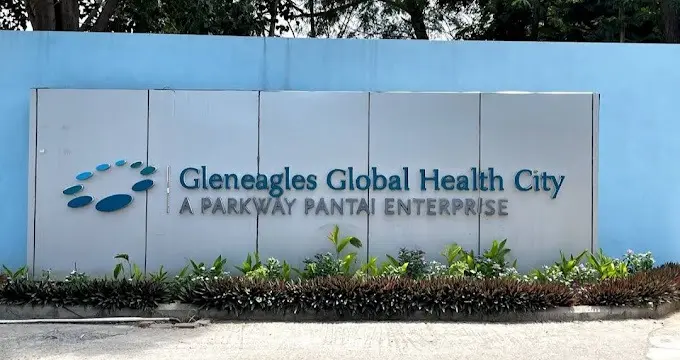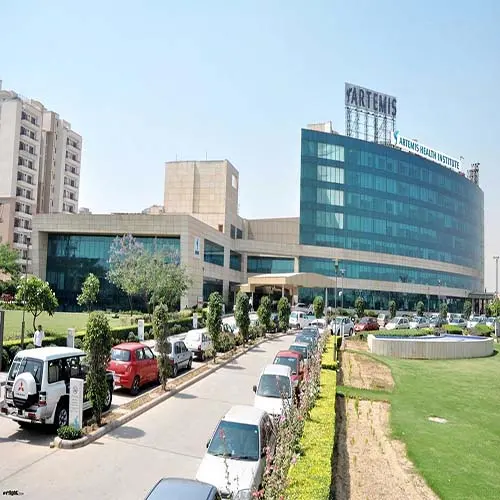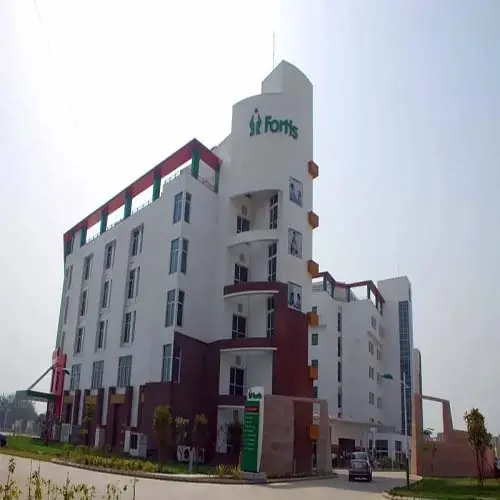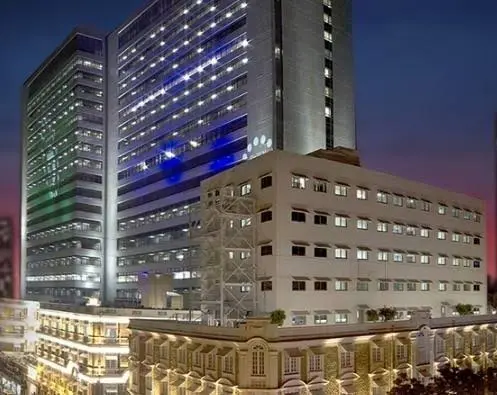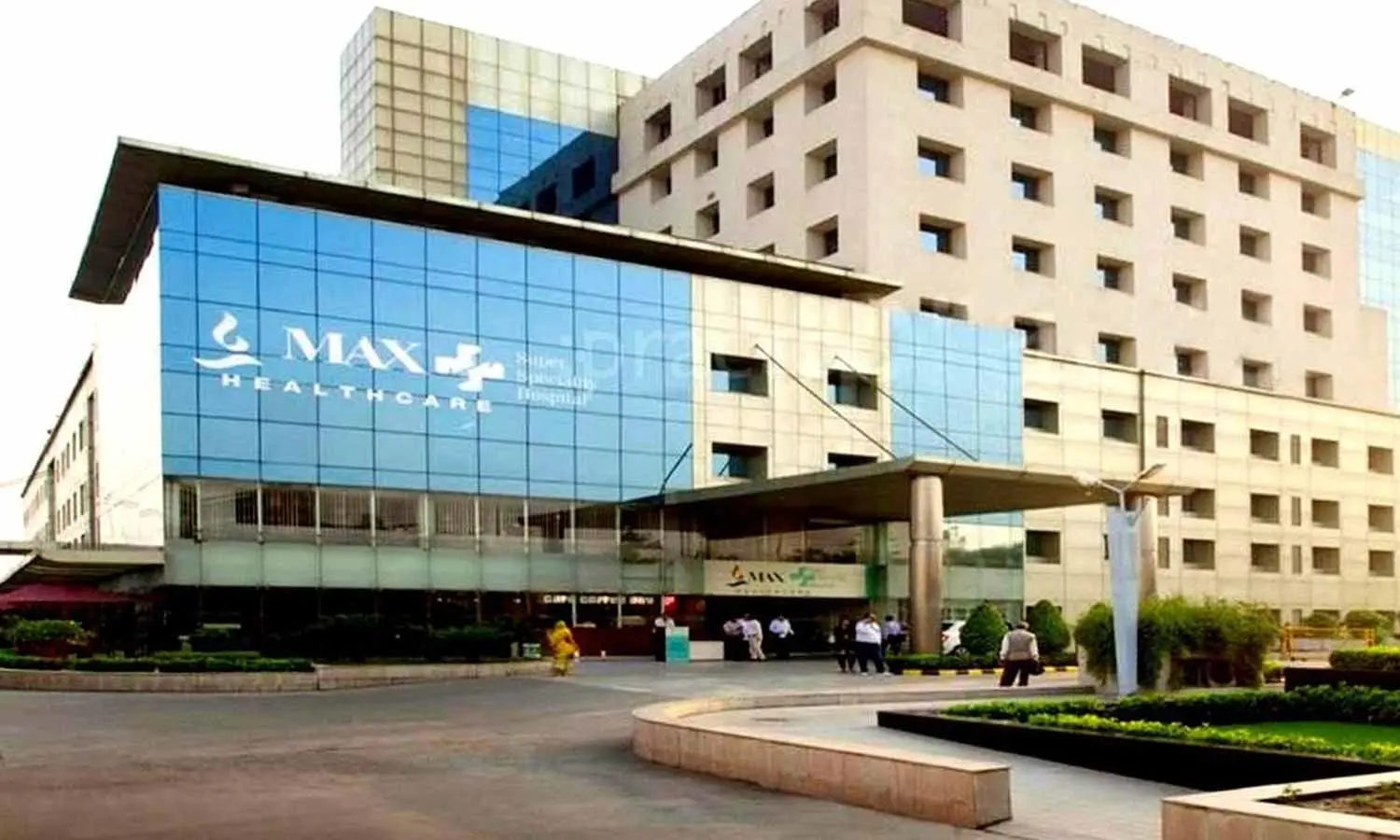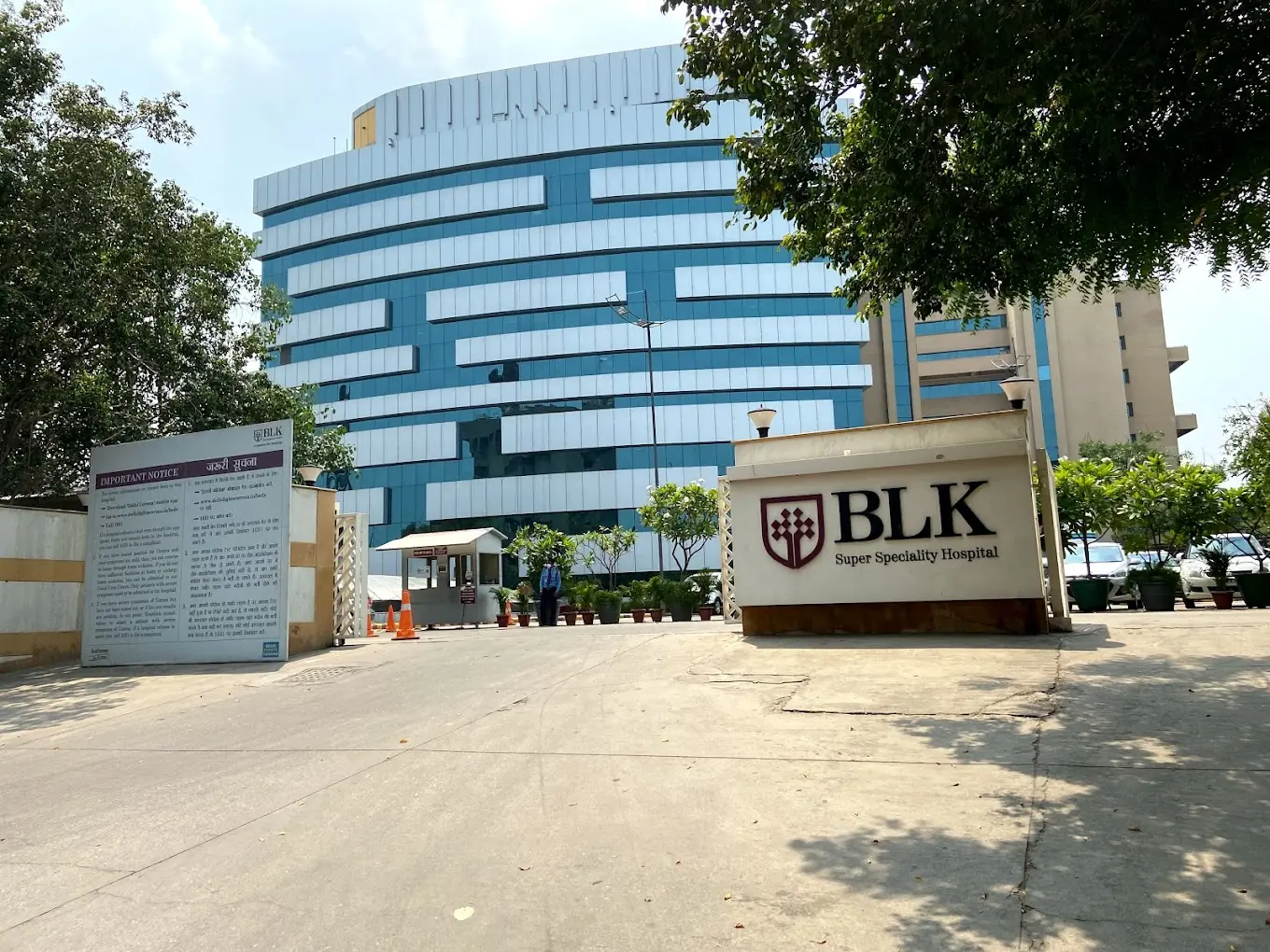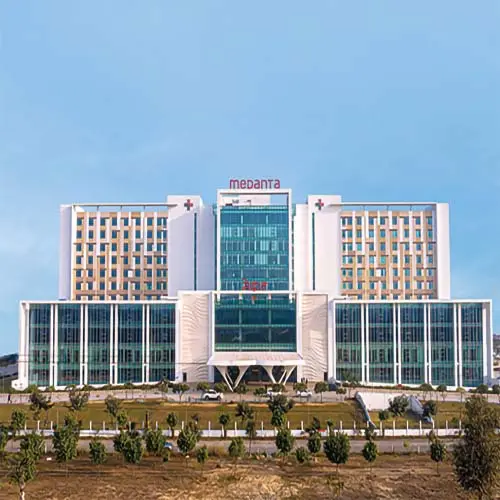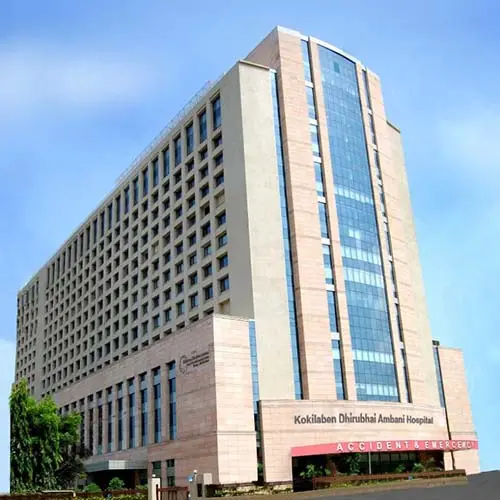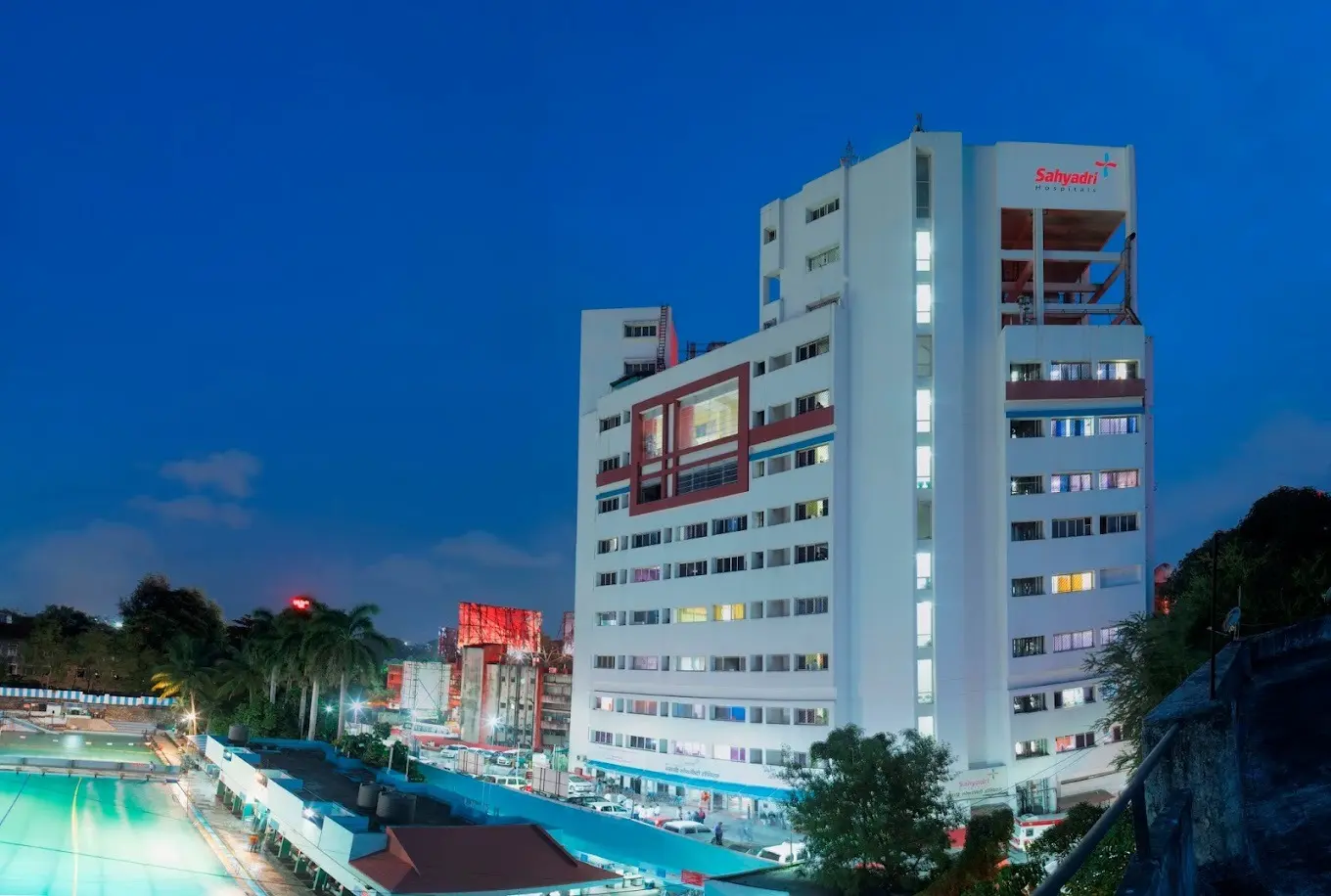Immunotherapy cost in India
Immunotherapy in India can cost between $2,000 to $4,500 per dose, which is approximately 1,68,000 to 3,78,000 Indian rupees. This advanced treatment is often essential for patients battling various types of cancer, as it helps stimulate the body's immune system to recognize and fight cancer cells more effectively. The cost of immunotherapy depends on factors such as the type of drug used, the number of cycles required, and the hospital providing the treatment. It is commonly used for cancers such as lung cancer, melanoma, and certain types of lymphoma, offering a promising alternative or complement to traditional treatments like chemotherapy and radiation therapy.
Cost Range of Immunotherapy cost in India
The treatment cost in India is far more affordable than in Western countries, where prices can be multiple times higher. Moreover, Indian oncologists are highly experienced and use globally approved drugs, ensuring safe and effective care. With personalized treatment plans, advanced technology, and cost-effective care, India has become a preferred destination for cancer patients seeking immunotherapy at international standards but affordable costs.
Get a free cost estimate
Who is a candidate for immunotherapy in India?
Immunotherapy is a cutting-edge cancer treatment that helps the immune system recognize and destroy cancer cells. In India, patients who are eligible for immunotherapy generally fall into the following categories:
1. Patients with Specific Types of Cancer
Immunotherapy is most commonly used in cancers that show high responsiveness to immune-based treatments. These include:
- Lung Cancer: Especially non-small cell lung cancer (NSCLC), where immunotherapy can be used as a first-line or second-line treatment.
- Melanoma (Skin Cancer): Patients with advanced or metastatic melanoma who do not respond well to traditional chemotherapy.
- Kidney Cancer (Renal Cell Carcinoma): Often treated with checkpoint inhibitors like nivolumab.
- Bladder Cancer: Advanced or recurrent bladder cancer cases may benefit from immune checkpoint inhibitors.
- Head and Neck Cancers: Including oral, throat, and laryngeal cancers, particularly when they are advanced or recurrent.
- Hodgkin’s and Non-Hodgkin’s Lymphoma: Especially cases that do not respond to chemotherapy.
- Breast Cancer: Triple-negative breast cancer (TNBC) is one of the breast cancer subtypes where immunotherapy can be highly effective.
- Colorectal Cancer: Patients with high microsatellite instability (MSI-H) or mismatch repair deficiency (dMMR) may benefit from checkpoint inhibitors.
- Liver Cancer (Hepatocellular Carcinoma - HCC): Some immunotherapies, such as PD-1 inhibitors, are approved for liver cancer treatment.
- Cervical Cancer: Advanced cases may benefit from checkpoint inhibitors like pembrolizumab.
- Prostate Cancer: Some patients with castration-resistant prostate cancer may be eligible for immunotherapy.
- Esophageal and Gastric Cancer: Some advanced cases respond well to checkpoint inhibitors.
2. Patients with Specific Biomarkers
Certain biomarkers indicate a higher likelihood of success with immunotherapy. Patients who undergo genetic and molecular testing and test positive for the following may be candidates:
- PD-L1 Positive Patients: Tumors that express Programmed Death-Ligand 1 (PD-L1) respond better to immune checkpoint inhibitors like pembrolizumab and nivolumab.
- High Tumor Mutation Burden (TMB): Patients with high TMB have a greater likelihood of responding to immunotherapy.
- MSI-H or dMMR Tumors: These markers indicate defects in DNA repair, making tumors more vulnerable to immune checkpoint blockade.
- HER2-Positive Cancers: Some immunotherapy drugs are being used in combination with targeted therapy for HER2-positive tumors.
3. Patients Who Have Not Responded to Traditional Treatments
- Chemotherapy-Resistant Patients: If chemotherapy or targeted therapy fails, immunotherapy may be considered as a second-line or salvage treatment.
- Patients Who Cannot Tolerate Chemotherapy: Some patients with pre-existing health conditions may not tolerate chemotherapy, making immunotherapy a viable option.
4. Patients with Advanced or Metastatic Cancer
- Patients whose cancer has spread to other parts of the body (stage 4 or metastatic cancer) and who have exhausted other treatment options may qualify for immunotherapy.
- In some cases, palliative immunotherapy is used to extend survival and improve the quality of life.
5. Patients with Autoimmune Diseases (Conditional Eligibility)
- Careful consideration is required for cancer patients with autoimmune diseases (e.g., rheumatoid arthritis, lupus) since immunotherapy can sometimes trigger an immune response that worsens their condition.
6. Pediatric Patients (Selective Eligibility)
- Certain types of childhood cancers, such as pediatric Hodgkin's lymphoma and neuroblastoma, can be treated with immunotherapy. However, it is less commonly used in children compared to adults.
Get a free cost estimate
Who is NOT a Good Candidate for Immunotherapy?
While immunotherapy is a breakthrough treatment, not all patients are eligible. Exclusions may include:
- Patients with Organ Transplants (due to risk of rejection)
- Patients with Severe Autoimmune Disorders (risk of severe immune reactions)
- Pregnant or Breastfeeding Women (limited safety data)
- Patients with Poor Overall Health or Weakened Immune Systems (may not tolerate immune activation)
Types of Immunotherapy & Associated Costs
Here is an overview of the common types of Immunotherapy along with their approximate cost range in USD:
Types of Immunotherapy Cost in India | Cost Range in USD |
Checkpoint Inhibitors Block immune checkpoints (e.g., PD-1, PD-L1, CTLA-4) to help the immune system attack cancer cells. | 1500 - 2500 per cycle |
Monoclonal Antibodies (mAbs) Lab-made proteins that target specific cancer cell antigens to trigger an immune response. | 2500 - 4000 per dose |
Car T-cell Therapy Genetically modifies a patient’s T cells to better recognize and kill cancer cells. | 55000 - 75000 |
Adoptive Cell Therapy (ACT) Transfers lab-enhanced immune cells (e.g., TIL therapy) back into the patient to fight cancer. | 2500 - 3500 per dose |
Dendritic Immunotherapy Uses dendritic cells to present cancer antigens to the immune system, enhancing the body's ability to recognize and attack tumors. | 2500 - 3500 per dose |
City wise Cost Comparison for Immunotherapy Cost in India
City | Cost in USD |
New Delhi / NCR | 2000 to 3500 |
Mumbai | 2800 to 4500 |
Bangalore | 3500 to 4000 |
Chennai | 2800 to 380 |
Immunotherapy Cost in India Inclusions
Type of immunotherapy as advised
Day care room charges
Routine drugs and consumables required during treatment
Doctor consultation
Immunotherapy Cost in India Exclusions
Pre-operative examination and tests related to staging of cancer
Any other treatment
Hotel stay, meals and flights
Post-treatment follow-ups and medical management
Treatment for any other underlying medical conditions
Any complex investigations or drugs
Other Factors Affecting Immunotherapy Cost in India
Type of treatment advised alongside
Size and location of the tumor
Stage and grade of cancer
Type of cancer
Choice of location, doctor and hospital
Pre-existing medical history
Type of immunotherapy advised
Diagnostic Tests for Immunotherapy Treatment
Types of Tests Done Before Immunotherapy in India | Cost Range in USD |
Blood tests These include the basic blood investigations for the patient to check organ functioning, infection status and tumor markers. | 50 to 80 |
Radiological Assessment This includes ultrasound, CT or MRI assessment of the affected areas. | 100 to 200 |
Histopathology Examination This includes tests such as fine needle aspiration cytology (FNAC) and biopsy of the tissue taken from the tumor site. | 150 to 250 |
Immunohistochemistry Examination This is to check for the ER / PR / Her2 receptor status on the tumor cells to decide the treatment approach. | 100 to 150 |
Full Body PET Scan This includes a full body PET FDG scan to check for an metastasis and establish the stage of the cancer. | 400 to 600 |
Why is India preferred as one of the best countries for immunotherapy?
India has emerged as a preferred destination for immunotherapy due to its combination of affordability, advanced medical infrastructure, and innovative research. The cost of immunotherapy in India is significantly lower than in many developed countries. For instance, treatments start at approximately $2,000 per session, whereas in the United States, similar therapies can range from $25,000 to $35,000 per session.
This substantial cost difference makes India an attractive option for patients seeking effective cancer treatments without the financial burden experienced elsewhere. The country's healthcare system boasts a network of top-tier hospitals and specialized cancer centers equipped with state-of-the-art technology and staffed by highly trained oncologists. These institutions offer a range of immunotherapy treatments, including cutting-edge options like CAR-T cell therapy and immune checkpoint inhibitors. The availability of such advanced treatments ensures that patients receive care comparable to international standards. India's commitment to research and development in the field of immunotherapy further enhances its appeal.
A notable study conducted in the country demonstrated that administering an ultra-low dose of the immunotherapy drug nivolumab (Opdivo)—just 6% of the standard dose used in Western countries—significantly improved survival rates for patients with advanced head and neck cancer. This approach not only proved effective but also made the treatment more affordable, potentially reducing costs to 5%–9% of full-dose regimens.
The Indian cancer immunotherapy market is experiencing rapid growth, with revenues projected to increase from USD 3,340.6 million in 2023 to USD 9,004.2 million by 2030, reflecting a compound annual growth rate (CAGR) of 15.2%.
This expansion indicates a robust infrastructure and a growing emphasis on immunotherapy as a viable cancer treatment. However, despite these advancements, accessibility remains a challenge. A study analyzing over 15,000 patients in India with head and neck or thoracic cancers found that less than 3% received immunotherapy, highlighting the need for broader implementation and patient access to these life-saving treatments.
Cost Comparison for Immunotherapy Price in India with Other Countries
Country | Cost in USD |
India | $2000 to $4500 per dose |
Turkey | $3500 to $5500 per dose |
UAE | $7500 to $9500 per dose |
USA | $25,000 to $35,000 per dose |
Best Hospitals Offering Immunotherapy in India
FAQs
Immunotherapy is a modern cancer treatment that helps your body’s own immune system recognize and attack cancer cells. Instead of directly killing cancer like chemotherapy, it boosts your natural defense system to fight the disease.
Immunotherapy is commonly used for cancers like lung cancer, melanoma (skin cancer), kidney cancer, bladder cancer, lymphoma, and some types of head and neck cancers. Your doctor will decide if it suits your cancer type.
Not all patients are suitable for immunotherapy. Eligibility depends on:
- The type and stage of cancer
- Overall health and immunity levels
- Test results (like PD-L1 expression and genetic markers)
Immunotherapy is usually given through an IV infusion (drip in the vein) at the hospital. The sessions can be once every 2–3 weeks, depending on the medicine.
The duration depends on your response and the cancer type. Some patients receive treatment for 6 months, while others may continue up to 2 years.
Immunotherapy usually has fewer side effects compared to chemotherapy. It may work better for certain cancers and provides longer-lasting results. However, chemotherapy may still be needed for some patients. Often, doctors combine both treatments.
Success depends on the type of cancer, stage, and patient’s health. For some cancers such as melanoma and lung cancer, immunotherapy has shown long-term survival benefits. Your doctor can explain the expected outcome for your case.

